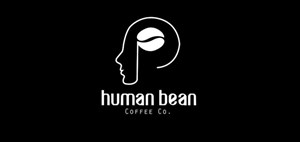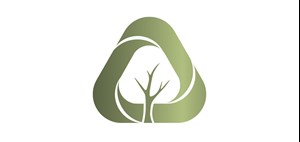When entrepreneur Taryn Hunter Sharman went into lockdown with the rest of South Africa in March 2020, the transition to Working from Home (WFH) was seamless for herself, her business partner Perri King, and her company, Faith & Fear, a growth marketing agency.
The reason? Sharman and King have built a business based on the gig economy. They work with talented industry experts who are not full-time employees, but instead have flexible schedules and are able to work from anywhere – at any time.
This meant that when businesses around the world were struggling to shift into virtual gear, Faith & Fear simply continued as usual, assisting their clients to find their new normal in a completely unprecedented situation.
The ability to focus on business as usual in an unusual world doesn’t mean that Sharman and her team haven’t learnt some significant lessons as a result of the pandemic and the move to virtual workforces, however.
Here’s how you can embrace her experiences to build a better, more empathic business that can recognise and deliver real value to clients – even during the most challenging circumstances.
Communication technology is linking people and businesses in incredible ways
15 years ago, Sharman made it to the top three of South Africa’s The Apprentice with Tokyo Sexwale. The contestants spent weeks isolated in hotel rooms with no cell phones or communication channels and received their challenges via fax. Going into lockdown and isolation again a decade and a half later, she was able to appreciate how digital communication channels have changed the game.
“Without the ability to engage with each other through Zoom, Microsoft Teams and a range of other communication and collaboration tools, working from home wouldn’t have been possible,” she says.
“We’ve all now become Zoom and Microsoft Teams aficionados, but I think as business owners we need to be asking ourselves a key question based on this experience: How much technology is available that we aren’t leveraging at all?
The technology available to regularly communicate with employees and customers is incredible, but what about leveraging data? The need to become virtual workforces overnight has accelerated the digital adoption of technology, but unless we use this as a stepping-stone into full digital transformation, we will all eventually lose a competitive advantage. Embracing communication technology is an opportunity to embrace so much more.”
More communication is always better
Hand-in-hand with utilising the technology you have at hand is communicating early and often. “As soon as lockdown happened, we made sure that we extended the communication channels between ourselves and our clients. We recognised that we needed to be regularly engaging with them in a meaningful way. Where we might have sent a text or email before, we started making quick calls instead. This allowed us to gauge how our clients were feeling and the current pressures they were under because we could hear their voices and attitudes on the other side of the line.
If there’s a catch phrase for the lockdown, it isn’t innovation or even adaptability – it’s meaningful conversations. We all needed to learn how to be more human in business if we were going to support each other and get through this together.
We won pitches over Zoom calls and ended up busier than ever during lockdown, juggling the biggest projects of our lives, and I believe one of the reasons for this success was because we went in with the human touch. We’re all just human beings. People have good days and bad days, and we addressed that.”
The human spirit is amazingly adaptable
“During the Apprentice, communication was limited and access to anyone we loved wasn’t allowed. We discovered that we all crave human contact, and this built strong bonds between us, even though we were competing. I saw the same during the lockdown. The human spirit can adapt to anything. Together, we dealt with the pressures of spending months locked down, home-schooling, juggling work and dealing with extreme uncertainty with real kindness towards each other.
Every parent has been interrupted by a child during a Zoom call. We’ve seen each other at our best and worst. We’ve accepted the disruptions of home and put aside the façade that we can separate our business lives from our home lives. In my opinion, this enables us to work more effectively together because we don’t need to delineate when we’re in family-mode or work-mode – we can weave the two together and focus our attention where it’s needed most.”
When you put your ego aside, you can find a balance that delivers incredible results
“No one can do it all. For example, it takes a village to raise kids. Most of us have amazing systems that we don’t use enough because we want to believe we can do everything. There’s this pervasive idea that we can have it all, a career, a business and children, without asking for help. But if you try and control all of these universes by yourself, you’re going to fail at something.
Instead, ask for help. I learnt this lesson a long time ago. I’m a huge cheerleader of my village. Grandparents, friends, family members, employees and partners all have important roles to play in how we manage our families and lives. We need to really celebrate these people instead of pretending we can handle everything alone.
That’s how you raise well-adjusted kids and build a successful career or business. I don’t always get it right; sometimes I feel I have failed my kids, and other days I achieve a thumbs up for being a mom and a thumbs down as a business owner. You can do it all – but not at the same time, so you need to direct your energy to where it’s needed most in that moment. And always ask for help.”
There’s a stronger focus on employee wellbeing – and we’re all better off because of it
“We’ve seen a strong focus on employee wellbeing taking shape, particularly in sub-sets of employees, such as single parents. Some people have needed more help during this time, and businesses have stepped up. If previously there was only lip-service (without the resources focusing on these issues), during lock-down real assistance emerged.
This humanity and empathy help employees to do their jobs well, while also supporting their lifestyles and family commitments, which in turn makes them more loyal to the business and better at supporting customers. It’s a shift that I believe will build better, stronger businesses going forward.”
Values are being highlighted and organisations need to do what they say
Successful businesses that have adapted to the challenges of Covid-19 all have similar traits. First, they tend to be ecosystems of people who subscribe to the same values. Top businesses are reviewing their values and questioning whether they’re upholding them, and that’s the mark of a great business that’s always willing to learn, adapt and support its people and customers.
“Set your values in place, have regular check-ins and ask the tough questions – do we believe in our values? Are they appropriate? Can we put our money where our mouth is? When your people, clients and communities all subscribe to the same values, you create shared value that everyone benefits from.”
There is no doubt that the pandemic has changed South Africa’s business landscape. The question is, can we use these lessons to build better futures for business owners and employees alike?
Working together for a better future
At Sasfin, we believe that as a South African business owner, you have a unique opportunity to use the lessons learnt during the Covid-19 pandemic to build your business on your terms, with all the tools available to you. Success is not defined by one big moment but rather by the smaller significant every-day moments that keep your business growing. Our definition of ‘normal’ has changed, but how we work together to build better businesses and futures has not.






